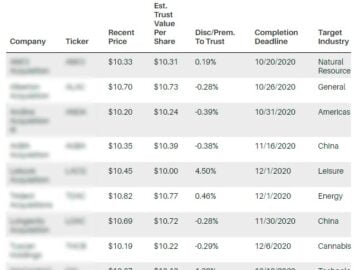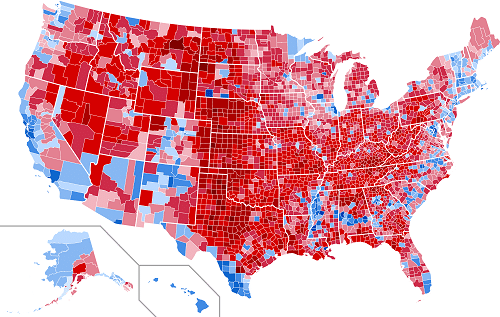Seeking out great stocks to buy is essential, but many would say it’s even more important to know which stocks to steer clear of. A losing stock can eat away at your precious long-term returns. So, figuring out which stocks to trim or get rid of is essential for proper portfolio maintenance.
Even the best gardens need pruning, and our team has spotted a few stocks that seem like prime candidates for selling or avoiding. Continue reading to find out which three stocks our team is staying away from this week.
Communications software company Everbridge (EVBG) made it to our list after the release of dismal 2022 guidance and the announcement of a poorly timed change in management. The company announced the resignation of CEO David Meredith and gave no explanation for him unexpectedly giving up his seat. In the interim, Everbridge’s CFO and VP Patrick Brickly and CRO Vernon Irvin will act as Co-Ceo’s until a permanent replacement is found.
BofA analyst Brad Sills downgraded Everbridge to Underperform from Neutral with a price target of $100, down from $175. The analyst cites the company’s announcement of the transition of its CEO. “The CFO and CRO of Everbridge are capable executives, but the CEO transition creates an overhang and also puts into question the overall future direction of the business,” Sills tells investors in a research note.
Everbridge also offered an initial look into revenue guidance for 2022. The company sees 20%-23% growth, well below Wall Street expectations. With growth decelerating 36% in 2021 to 23% in 2022, there are a lot of unanswered questions that management has yet to address.
JPMorgan analyst Sterling Auty also downgraded EVBG to Neutral from Overweight with a price target of $127, down from $200. The analyst believes the new 2022 growth guidance is likely to further solidify growth deceleration concerns, “especially with the possibility of disruption from the leadership change.”
Stay-at-home culture lifted PTON to great heights throughout 2020, surging above $160 during that year’s holiday season. Sadly, the past year has not been kind to Peloton as reopening headwinds seem too much for the company to handle. The company’s failure to execute amid growing market competition has dragged share price down 80% over the past year.
A large part of that loss came after the company reported a steep revenue miss during its most recent earnings call. The consensus was looking for $1.51 billion in revenue for the first quarter and $5.4 billion for fiscal 2021. The reported figures fell short, further disappointing investors. Peloton reported $1.1 – $1.2 billion in revenue for the first quarter and $4.4 – $4.8 billion for FY21. The company attributed its lackluster performance to a greater than expected tapering in retail visits and website traffic.
To make matters worse, Peloton’s outlook for FY22 was less than rosy. The company said that the supply chain crisis and higher freight costs led them to lower guidance for the year. The company further stated that its team has never seen a more complex operating environment to guide or expect results. Hardware margins are seeing compression from supply chain and logistics issues limiting visibility into future performance. The company lowered FY22 revenue guidance initially provided last quarter by $800 million.
Peloton has been downgraded at several firms and its price target slashed. Stifel analyst Scott Devitt downgraded Peloton to Hold from Buy with a price target of $70, down from $120. The analyst says the company’s fiscal year outlook has seen “rapid deterioration.”
PTON share price has bled 72% over the past 6 months, which could pique the interest of bargain hunters. We’ll stick to the sidelines until there is evidence to validate the already pricey valuation.
School bus maker Blue Bird Corp. (BLBD) could be the beneficiary of increased infrastructure spending in the years to come. However, ongoing supply chain disruptions and the growing cost of materials have taken a toll and are expected to hold back 2022 production. BLBD makes our list of stocks to avoid after a dismal earnings call where the company reported misses on the top and bottom lines for the fourth quarter and lowered 2022 guidance.
The company cited supply chain snags as the cause for its Q4 production miss. Over 2,000 school bus deliveries were pushed back into fiscal 2022. Things could get worse before they get better for Bluebird. Sure, the company’s backlog is at a record high, but the 4,200 units currently in backlog are mostly at fixed price commitments that predate an 11% price increase for inflation, and there has been talk of at least one more price increase in 2022.
Roth Capital analyst Craig Irwin recently lowered the firm’s price target to $13 from $21 and kept a Neutral rating for BLBD. The analyst cited the “ugly Q4 results” and uncertainty around the expected infrastructure funding, due in part to heavy funding support for EV busses.
The good news for Blue Bird is that school bus demand has largely recovered to pre-pandemic levels, and order strength has returned. Until supply chain and material cost issues are in the rearview, we’ll stay away from this one.














